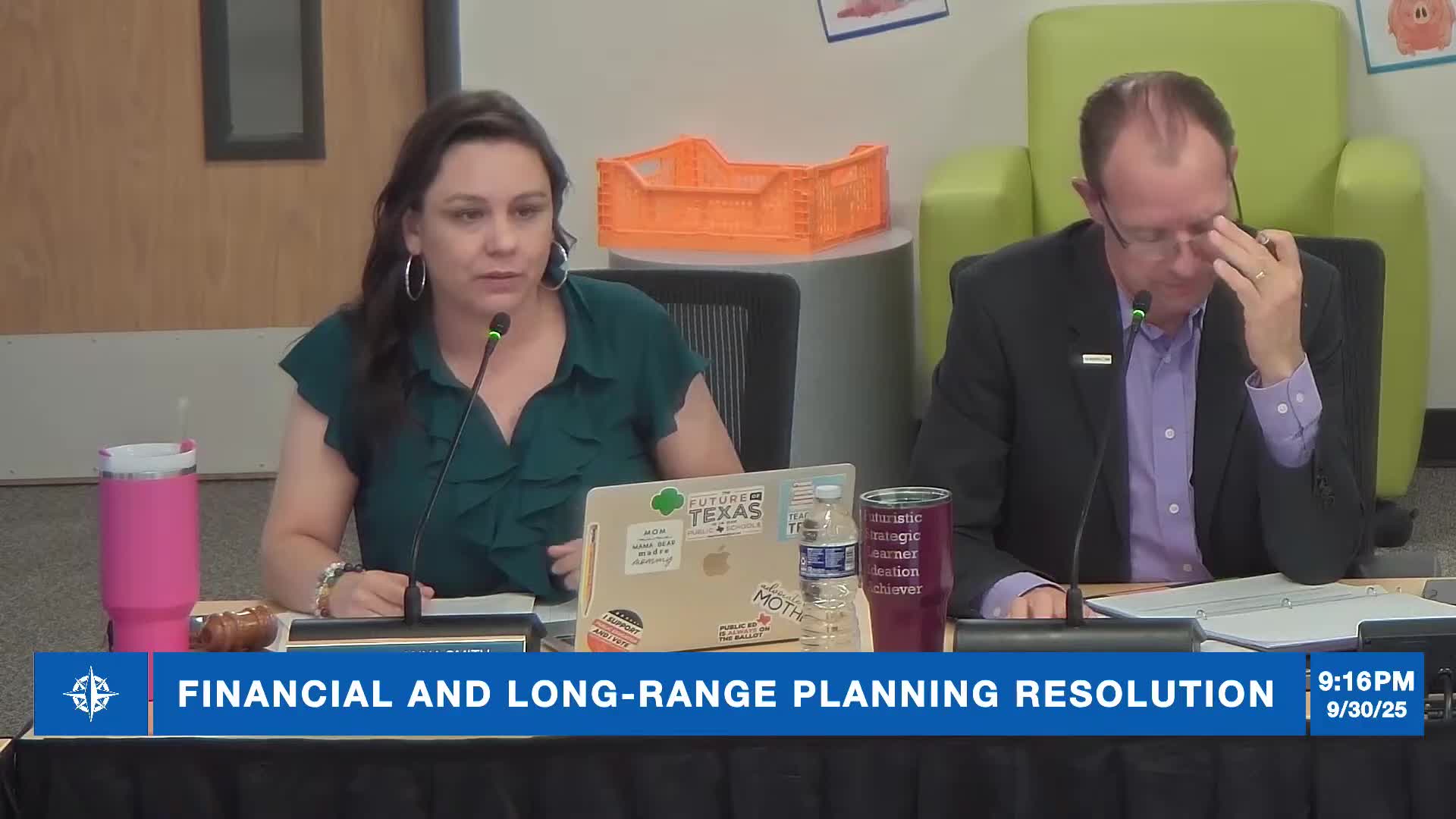Local Board Discusses Program Evaluation Standards and Audit Compliance Requirements
October 01, 2025 | LEANDER ISD, School Districts, Texas
This article was created by AI summarizing key points discussed. AI makes mistakes, so for full details and context, please refer to the video of the full meeting. Please report any errors so we can fix them. Report an error »

In a special meeting held on September 30, 2025, the Leander Independent School District (LISD) Board of Trustees engaged in a detailed discussion regarding the evaluation of district programs. The meeting highlighted the complexities involved in assessing educational programs and the need for a structured approach to ensure efficiency and accessibility for students.
The board members expressed a desire to refine the language surrounding program evaluations, emphasizing the importance of understanding what constitutes an efficient program. One trustee pointed out that while evaluating all programs may seem straightforward, it is a complex process that could take years to implement effectively. This caution was echoed by others who recognized the challenges posed by limited resources and the need for realistic expectations.
A significant focus of the discussion was on the need to balance program efficiency with student access. Board members debated whether to maintain specific references to certain programs in the policy language, as this could limit the administration's flexibility in making decisions based on current needs and demands. The consensus leaned towards allowing the administration discretion to explore efficiencies without being constrained by overly specific mandates.
Trustees also revisited the outcomes of a previous curriculum audit, which had identified areas of inefficiency in program funding and allocation. This audit served as a foundation for the current discussions, with board members advocating for a policy that would require annual updates on program evaluations. They stressed the importance of aligning the policy with the district's goals of maximizing educational resources while ensuring that all students have access to quality programs.
As the meeting progressed, the board members agreed on the need for a clear plan that outlines how program evaluations will be conducted, focusing on factors such as enrollment, demand, and overall efficiency. They recognized that a collaborative approach would be essential in developing this plan, ensuring that all stakeholders are on the same page regarding the district's educational priorities.
In conclusion, the LISD Board of Trustees' discussions underscored the critical need for a comprehensive and flexible approach to program evaluation. As the district moves forward, the board's commitment to refining its policies will play a pivotal role in enhancing educational outcomes for students across the district. The next steps will involve drafting language that reflects these discussions and ensuring compliance with established policies, setting the stage for future evaluations and improvements in the district's educational offerings.
The board members expressed a desire to refine the language surrounding program evaluations, emphasizing the importance of understanding what constitutes an efficient program. One trustee pointed out that while evaluating all programs may seem straightforward, it is a complex process that could take years to implement effectively. This caution was echoed by others who recognized the challenges posed by limited resources and the need for realistic expectations.
A significant focus of the discussion was on the need to balance program efficiency with student access. Board members debated whether to maintain specific references to certain programs in the policy language, as this could limit the administration's flexibility in making decisions based on current needs and demands. The consensus leaned towards allowing the administration discretion to explore efficiencies without being constrained by overly specific mandates.
Trustees also revisited the outcomes of a previous curriculum audit, which had identified areas of inefficiency in program funding and allocation. This audit served as a foundation for the current discussions, with board members advocating for a policy that would require annual updates on program evaluations. They stressed the importance of aligning the policy with the district's goals of maximizing educational resources while ensuring that all students have access to quality programs.
As the meeting progressed, the board members agreed on the need for a clear plan that outlines how program evaluations will be conducted, focusing on factors such as enrollment, demand, and overall efficiency. They recognized that a collaborative approach would be essential in developing this plan, ensuring that all stakeholders are on the same page regarding the district's educational priorities.
In conclusion, the LISD Board of Trustees' discussions underscored the critical need for a comprehensive and flexible approach to program evaluation. As the district moves forward, the board's commitment to refining its policies will play a pivotal role in enhancing educational outcomes for students across the district. The next steps will involve drafting language that reflects these discussions and ensuring compliance with established policies, setting the stage for future evaluations and improvements in the district's educational offerings.
View full meeting
This article is based on a recent meeting—watch the full video and explore the complete transcript for deeper insights into the discussion.
View full meeting
